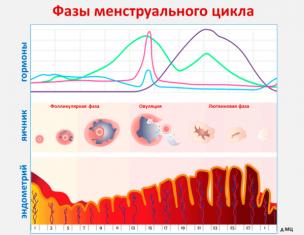Photo from moovgo.com
It is difficult to find a person who has never taken a loan. Buying a house, a car, repairing an apartment, traveling - all this requires considerable costs. The surest way to get closer to your dream is to borrow money from the bank. But far from always the desired becomes valid: sometimes the lender refuses the client. There can be several reasons, one of which is bad credit history.
What is a credit history and what does it consist of
Want to know your loans but don't know where to start? First of all, we need to understand the concept itself. A credit history is a detailed dossier about a person and their banking transactions, loans, tax payments and utility bills. All financial steps taken through specialized institutions are recorded in a special database.
What does a credit history consist of?
- Passport data.
- actual place of residence.
- Loan data.
- Reports on the payment of taxes and utilities.
Information is accumulated throughout a person's life, if necessary, corrected. The chain of formation of a personal dossier is simple, it takes place in 3 stages.
Stage 1. You come to the bank and take out a loan. Before contacting a financial company, experts recommend checking your credit history for free - this can be done independently, via the Internet.
Stage 2. The bank draws up all the necessary paperwork and transfers information about the transaction to the Credit History Bureau (BKI).
Stage 3. BKI, having fixed the data, sends them to the main archive - the Central Catalog of Credit Histories (CCCH).

Photo from kd44.ru
How to find out what my credit history is
As mentioned above, all your actions related to debt obligations to banks, financial institutions, loan agencies are recorded in a special database assigned individually to you. It contains detailed information about monthly payments, adherence to the established schedule, delays, penalties and other points that ultimately add up to your reputation.
This global archive (for each borrower within the country) is managed by the Central Bureau of Credit Histories (CBR). Access to the database is open, if necessary, bank employees receive information on a specific person. The CCCH helps with this - the Central Catalog of Credit Histories, which combines the entire amount of data from each bureau.
When employees of financial institutions need to obtain information about a particular person, they turn to the BKI or CCCH for help. Credit histories help form an opinion about a person and the level of trust in him.

Photo from finansy.pp.ua
The CCCH registry contains information not only on physical and legal credit histories, but also data on cars and real estate. Through this system, you can check whether the apartment is pledged to the bank.
For your information
You can check your credit history for free through the same instances that are open to representatives of banks. Some services may be paid.
How does the bank find out the credit history of the client
All that a lender needs to verify the borrower's reliability is to send a request to the CBKI. The bureau processes the application, looks for a specific history, and, a few days later, provides the requested organization with a comprehensive report on past and present debt obligations. If the credit history is in doubt, the bank refuses the client.
The data exchange system between the banks themselves is also successfully operating. Financial institutions enter into an agreement under which they have the right to request data on borrowers from each other. The procedure is simpler and faster than through a credit bureau.
For your information
In the archives of banks, information on customer credit transactions is stored for 15 years.
Reasons why a bank refuses a loan
Not all loan requests are approved by banks. Having received a refusal, the client may ask about its reasons - the information is not secret. By clarifying the circumstances that have arisen, you will know that a similar situation may be repeated in other banks. If possible, it is better to correct the reason for the refusal, correct it, but this is not always possible.
The most common reasons for rejection are:
- Low salary. The lender analyzes your solvency, calculates coefficients based on the level of income and the monthly amount of debt repayment. Indicators at a minimum - a loan request is not confirmed.
- The loan is inactive. Sometimes the client chooses a program that has a restriction. In this case, bank employees are obliged to warn you about the circumstances and offer other lending opportunities.
- Bad credit history. Before approving a request, employees of any bank will dive into the details of not only your well-being, but also get acquainted with your credit history in detail. The reputation is damaged - a refusal will follow.

Photo from credits-finances.ru
How and where can I check my credit history
Before asking the bank for a loan, ask yourself how to get your credit history for free. Often, clients, having received a refusal, are surprised and do not understand why the lender had doubts. One of the imperfections of the system is errors in net credit histories, which can be corrected, but first they must be found. This can be done both through specialized institutions and independently.
Bank services
All transactions with borrowers go through the credit department. This is where you apply, this is where you get the answer. Employees also prepare a financial dossier for the client, request a credit history from partner banks or BKI, analyze it and issue a verdict. If you ask for help in obtaining such information, you will either be prompted to solve the problem yourself, or offered a paid service.

Photo from kazanfirst.ru
CCCH
There are two options here. The first is on your own. You can get information about your credit history without contacting specialized specialists only if you have a subject code - a password for individual access.
For your information
If you lose the password to the access code, you need to contact the bank with an application for its replacement. Employees will provide you with new “keys” with which you can get data about your CI. The service is paid.
So, you have the code. Go to the official website of the Central Bank, find the “Credit History” section in the menu, fill out a request in a special form, and wait for a response. The procedure can take up to 10 days.
The second option to find out your credit history through the CCCH is to use the services of an agency. The method is paid, convenient and fast. Data can be obtained online:
- Go to the site, register, get into your personal account.
- Enter information that confirms your identity. The site will give hints on possible identification methods.
- Using the services of the site, pay for (verbatim) “credit report”.
- Go to the section NBCH (National Bureau of Credit Histories) and get your extract from the register of credit histories.
Intermediaries
The service of providing a client with a specific credit history is included in the list of paid services of companies specializing in working with financial databases. Specialists significantly reduce the time of the procedure by sending requests to several bureaus at once. As a result, for a certain amount, you quickly get the information you need. But here, too, one must be careful in choosing assistants - sometimes there are swindlers and non-professionals among them.
Internet
Through online services, you can view your credit history for free, but you need to take into account the risks of encountering scammers. One of the rules is caution. Before entering your personal data, make sure the service you choose is reliable. Use the advice of the bank's credit department employees - you can trust their recommendations. Having a password to the subject's personal code, you will be able to successfully complete each stage of the online service.

Photo from biz-kreditka.ru
A reliable, but long way is to use the services of BKI websites. The catch is that you will need to apply to each bureau (to maximize the database that holds your credit history). The sites are the same in management, it will be easy to figure it out:
- Log in or register.
- Enter your personal information in the dedicated fields. If the eID service is installed on the site, the specialist asks questions, and you answer them step by step.
- Click the button about receiving CI by e-mail.
For your information
Be careful when entering personal data on the BCI website. The slightest mistake will cause your request to fail.
Can you fix your credit history?
In credit histories, only technical errors made by the bank itself can be corrected. But first, this fact must be proven. If you have certificates, receipts, statements, it will be quite easy. It is problematic to restore a reputation damaged by long delays in payments. If the debt repayment schedule was violated several times, this is not critical, there is an opportunity to rehabilitate.

Photo from pravdaurfo.ru
Taking care of your financial “health”, keep track of timely payments of taxes, alimony, and utilities. These data are also entered into the BKI register. And most importantly, before borrowing money, realistically assess the possibilities and check your credit history for free.









